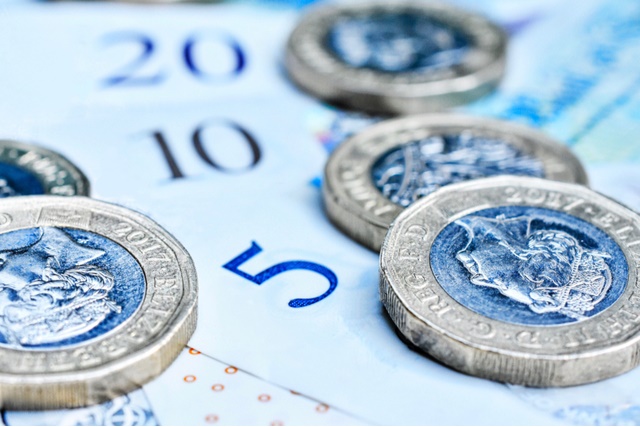GBP/EUR Exchange Rate Jumps to Two Month High
The Pound to Euro (GBP/EUR) exchange rate has rallied sharply this morning, soaring in response to a better-than-expected jobs report from the UK.
At the time of writing the GBP/EUR exchange rate is trading at around €1.1243, up roughly 1% from this morning’s opening rate.
Pound (GBP) Strengthened by Upbeat Wage Growth
The Pound (GBP) has rocketed higher against the Euro (EUR) and the majority of its other peers this morning as market cheer the publication of the UK’s latest wage growth figures.
According to data published by the Office for National Statistics (ONS), average earnings jumped from 0.1% to 1.3% in September, beating forecasts for a more modest rise of 1%.
However, the accompanying jobless figures made for less cheery reading as the UK’s unemployment rate continued to surge, rising from 4.5% to 4.8% in September.
This was the highest rate of unemployment since the last quarter of 2016 as came as the unwinding of the government’s furlough scheme saw more companies implement redundencies.
But, with the government having recently extended its furlough scheme until March, analysts are optimistic that the pace of redundancies is likely to slow in the coming months.
Jonathan Athow, deputy national statistician for economic statistics at the ONS said:
‘We might see furlough creep up again and that might mean we don’t see any further big increases in redundancies or unemployment, but it’s way too early to tell what will happen.’
Euro (EUR) Slumps as German Economic Sentiment Plunges
At the same time, the Euro (EUR) is on the defensive today, following the publication of Germany’s latest economic sentiment figures.
The ZEW Institute’s gauge of investor sentiment, tumbled from 56.1 to just 39 this month, striking its lowest levels since April.
Unsurprisingly this slump in economic morale comes as investors express concern over how new lockdown measures across Europe will impact economic growth.
ZEW President Achim Wambach, said:
‘Financial experts are concerned about the economic impact of the second wave of COVID-19 and what this will entail.
‘There is also the additional worry that the German economy could head back into recession.’
While the survey was carried out before yesterday’s coronavirus vaccine news, the threat of a double-dip recession is likely to have soured sentiment regardless.


Comments are closed.